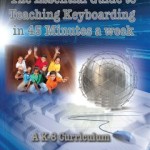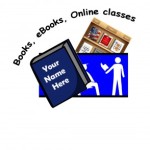April 24, 2013
5 Strategies to Assess Student Knowledge
 Sent to IMS Jan 12th. Send to TeachHUB two weeks later:
Sent to IMS Jan 12th. Send to TeachHUB two weeks later:
This is always challenging, isn’t it? Finding evidence that students have learned what you taught, that they can apply knowledge to complex problems. How do you do this? Rubrics? Group projects? Posters? None sound worthy of the Common Core educational environ–and too often, students have figured out how to deliver within these guidelines while on auto-pilot.
Where can we find authentic assessments that are measurable yet student-centered, promote risk-taking by student and teacher alike, inquiry-driven and encourage students to take responsibility for his/her own learning? How do we assess a lesson plan in a manner that insures students have learned what they need to apply to life, to new circumstances they will face when they don’t have a teacher at their elbow to nudge them the right direction?
Here are my top five strategies to determine if I’m succeeding:
Anecdotally
I observe their actions, their work, the way they are learning the skills I’m teaching. Are they engaged, making their best effort? Do they remember skills taught in prior weeks and apply them? Do they self-assess and make corrections as needed?
Teach others
Are students comfortable flipping learning and becoming the teacher? There’s a hierarchy of learning that goes like this:
- Student doesn’t listen
- Student doesn’t believe
- Student tries it once
- Student remembers it
- Student shows it to others
- Student teaches others
Like Maslowe’s Hierarchy of Needs, the highest praise is that students teach the skill to others. That’s learning.
I encourage it in my classes by having the lab open during recess and lunch, but with students as helpers. I only take 1-2 and always have more offers than I need.
Verbalize
Can students use the right words to share answers? No umms, no hand motions, no giggles. Can they take a deep breath and share their knowledge in a few succinct sentences? This works well on a Discussion Board which I use as a summative for vocabulary and problem solving tests. I set up a discussion board, ask each student to add a problem or vocabulary word we covered, and then comment on a classmate’s. They can then use this resource during the test. We’ve done it a few times and students have figured out if they blow off the Discussion Board part of the assessment, everyone suffers. Friends don’t have the study guide, or worse, the answer’s wrong because classmates didn’t take the time to write it correctly.
As important, can students transfer knowledge learned in my class to other classes and/or other parts of their life? Do I hear fun stories from parents and teachers about how students used something learned? Do the students themselves share a snippet with me about how they ‘helped mom use Google Maps to find…”
Summarize knowledge
But not in an essay. Use knowledge to create a magazine, an Animoto video, a Puzzlemaker crossword (click Great Resources for ideas). It’s the ‘use’ part of assessment that’s most important. Can students use the knowledge or does it just sit in a mental file folder?
Oral presentations
This can be summative, formative, informational, or informal. It can be a quick answer to questions in the classroom, coming up to the Smartscreen and solving a problem, teaching classmates how to solve a problem during class, or preparing a multimedia presentation to share with others online or in person. It includes much more than an assessment of learning. It judges a student’s presentation skills, ability to talk to people–life skills fundamental.
In the end, the choice of assessment depends upon the goal of teaching. Which works best for you?
Jacqui Murray has been teaching K-8 technology for 15 years. She is the editor of a K-8 technology curriculum, K-8 keyboard curriculum, K-8 Digital Citizenship curriculum, and creator of technology training books for how to integrate technology in education. She is the author of the popular Building a Midshipman, the story of her daughter’s journey from high school to United States Naval Academy. She is webmaster for six blogs, CSG Master Teacher, an Amazon Vine Voice book reviewer, Editorial Review Board member for Journal for Computing Teachers, Cisco guest blogger, a columnist for Examiner.com, featured blogger for Technology in Education, IMS tech expert, and a monthly contributor to TeachHUB. Currently, she’s editing a techno-thriller that should be out to publishers next summer. Contact Jacqui at her writing office or her tech lab, Ask a Tech Teacher.






